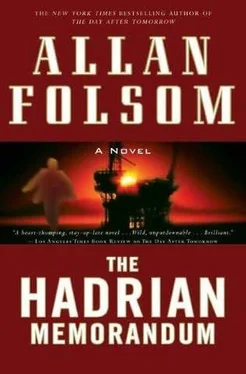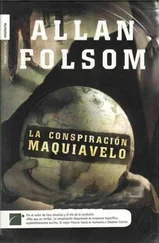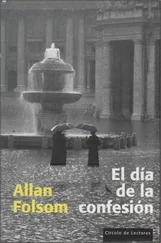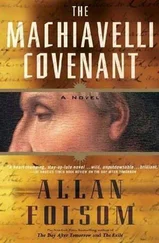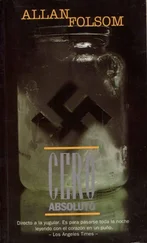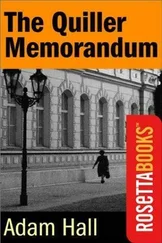Marten smiled. “It’s a pleasant coincidence.” Some coincidence, he thought. From what he’d learned at the front desk, it was the only flight out for the next two days, and the army clearly wanted them all off the island as quickly as possible. He looked around the table. None of them seemed to have been ill treated. Still, they had been questioned, and he wanted to know what they had told whoever had done it. He wondered if the subject of the photographs had come up, or if they even knew about them. He turned to Marita. “What did they ask you?”
“They searched us and then wanted information. Mostly about you. How we came to be traveling together. What we knew about you. The things you said to us.”
“What did you tell them?”
“The truth, of course. That we saw you walking on the beach and you collapsed and we went to help you. After that all the things you told us,” Marita smiled conspiratorially, the impishness in her rising up, then she repeated almost verbatim what he had told them on the beach and what they had gone over in the Land Cruiser on the drive to Malabo. “Afterward they asked what we were doing in Bioko, but we had already documented our purpose with the proper authorities when we first arrived. So we were okay.”
“That’s all they wanted, nothing else?”
“No.”
“Nothing about a priest?”
“No. Why?”
Marten shook his head. “Nothing.” Apparently the matter of the photographs had not come up. Perhaps because the authorities were satisfied with what he had told them and believed that the distance between Father Willy’s village and the beach where he had been found was too great to have involved a conspiracy to smuggle the pictures out. If that were the case, then the pictures would not have been mentioned. No reason to alert others to their existence if there was no need; that could only serve to complicate things later if some unforeseen problem arose, say, with the media and inquisitive reporters.
Suddenly Ernesto ran a hand through his pasture of red hair. “There was one other thing,” he said in English. “When we collected our luggage we realized everything had been gone through, even our medical supplies. But nothing was missing. Why they did it none of us knows.”
Marten half-smiled. “Don’t feel bad, they went through mine, too. Looking for what, I don’t know any more than you do.” So they had been looking for the pictures. They weren’t that incompetent. “I guess they have a revolution on their hands and aren’t taking any chances.”
At that moment a sudden gust of wind sent an avalanche of rain across a large window behind them. Seconds later a stronger gust rattled the entire building. Again the lights flickered, almost went out, then came back on.
“We’ll be lucky if we get out tonight at all,” Marita said with not well hidden apprehension. She didn’t like being stuck here any more than Marten did. Too many things could still go wrong.
“That’s what I was thinking,” Marten said.
Immediately something off to one side caught Marita’s eye, and she turned to look. Marten followed her gaze to see a tall, attractive woman coming toward them through the crowd. She was probably in her late thirties or early forties, had stylishly cut, shoulder-length dark hair, and wore expensive white linen slacks with a matching short-sleeve top. She also had the intense, almost severe air of someone used to being in charge and had something immediate and definitive on her mind.
With her was a handsome man in a tan suit with a light blue shirt open at the collar. He looked to be a little older than she, was well over six feet tall, had dark, close-cropped hair, and appeared to be more than physically fit. He, too, held the aura of authority. It was in the cut of his clothes and the way he carried himself: shoulders back, chest out; his movements smooth and fluid; his presence bordering on the aristocratic. It was a characteristic Marten had seen in some of his clients in Manchester, a studied military bearing born in the career officer ranks of the armed forces. There was something else, too, and it nearly took Marten’s breath away. He was one of the SimCo men he had seen in Father Willy’s photographs transferring weapons to the insurgents in the jungle.
“I believe you are Mr. Marten,” the woman said as she reached him.
Marten looked at them warily. “Yes, why?”
“My name is Anne Tidrow. This is Conor White.”
“What can I do for you?”
“I’m a member of the board of directors of the AG Striker Oil and Energy Company,” Anne Tidrow said. “Mr. White is head of the security firm we have retained to safeguard our workers in Equatorial Guinea. We understand that you were caught up in the rebellion in the south where a German priest was killed. Since Striker has many employees in various regions of Bioko, we are naturally concerned for their safety. Anything you could tell us about what you saw or experienced might help us be better prepared to protect our people.”
“I went over the details at great length with army interrogators. Why don’t you ask them?”
“Unfortunately the army does not share that kind of information with us, Mr. Marten,” Conor White said, his accent noticeably British. “Might we have a few moments of your time? And in private, if you don’t mind. This room is filled with large ears, and we wouldn’t want to inadvertently create a climate of fear where there is none. Or at least where we hope there is none.”
Marten hesitated. Here was a situation he could hardly have imagined. The oil company’s chief security contractor, a man photographed supplying arms to the rebels, standing in front of him asking him to give him details of what he knew about the rebellion, and the woman with him, a member of Striker’s board of directors, going so far as to mention Father Willy, though not by name. Maybe the army didn’t share information with SimCo, but Conor White undoubtedly knew about the photographs and possibly knew that Marten had spent time alone with the man who took them. It meant that he, like the army, suspected Marten knew where the pictures were and wanted to retrieve them as quickly and quietly as possible. That explained Conor White and why he was here. What about Anne Tidrow?
It was interesting to wonder why she was even in Bioko, let alone here with White. There was little doubt she knew about the photos, too, or White wouldn’t have dared expose his involvement with the rebels by bringing her along. So why would she be trying to protect SimCo when that was the firm her company had hired to safeguard its employees from the insurgency it was helping to fuel? It was the same question he had asked Father Willy.
“I came in here hoping to find a gin and tonic,” Marten said finally. “Then I ran into my friends, and so far a waiter hasn’t been by.”
“Gin and tonic sounds good,” White said. “Why don’t we see about it at the bar?”
Marten nodded. “Why not?”
7:35 P.M.
Conor White led them to a corner of the bar that was away from the crowd and relatively quiet, seemingly safely devoid of the “large ears” he had referred to. An aging Asian barman wearing a dark toupee, who looked like he’d been there since the building was erected, came over, and White ordered drinks. As he did, Marten pulled back a worn rattan barstool for Anne Tidrow.
“Thank you.” she said, smiling.
“How did you know my name and that I was, as you put it, caught up in the rebellion in the south? Who told you?”
“My people,” White answered for her. “We often monitor army radio communications. It helps us keep up on what’s happening inside the country.”
“It does until you get caught.”
Читать дальше
